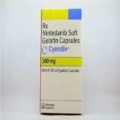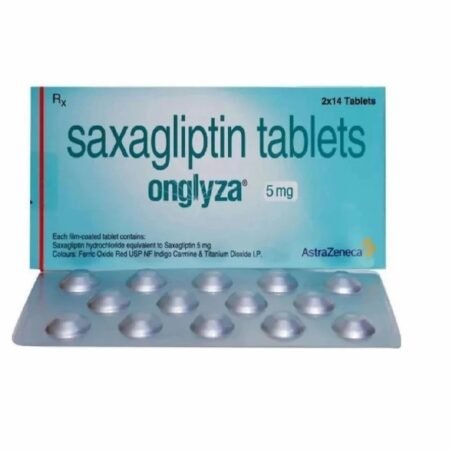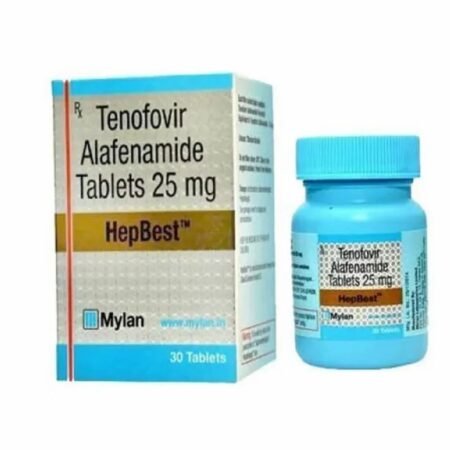Description
Nintedanib 100mg , 150mg is a prescription medicine used:to treat people with a lung disease called idiopathic pulmonary fibrosis (IPF).to treat people with a chronic (long lasting) interstitial lung disease in which lung fibrosis continues to worsen (progress).to slow the rate of decline in lung function in people with systemic sclerosis-associated interstitial lung disease (SSc-ILD) (also known as scleroderma-associated ILD).It is not known if Nintedanib is safe and effective in children.What are the possible side effects of Nintedanib?Nintedanib may cause serious side effects, including:See “What is the most important information I should know about Nintedanib?”liver problems. Call your doctor right away if you have unexplained symptoms such as yellowing of your skin or the white part of your eyes (jaundice), dark or brown (tea colored) urine, pain on the upper right side of your stomach area (abdomen), bleeding or bruising more easily than normal, feeling tired, or loss of appetite. Your doctor will do blood tests to check how well your liver is working before starting and during your treatment with Nintedanib.diarrhea, nausea, and vomiting. While you are taking Nintedanib, your doctor may recommend that you drink fluids or take medicine to treat these side effects. Tell your doctor if you have diarrhea, nausea, or vomiting or if these symptoms do not go away or become worse. Tell your doctor if you are taking over-the-counter laxatives, stool softeners, and other medicines or dietary supplements that can cause diarrhea.heart attack. Tell your doctor right away if you have symptoms of a heart problem. These symptoms may include chest pain or pressure, pain in your arms, back, neck or jaw, or shortness of breath.stroke. Tell your doctor right away if you have symptoms of a stroke. These symptoms may include numbness or weakness on 1 side of your body, trouble talking, headache, or dizziness.bleeding problems. Nintedanib may increase your chances of having bleeding problems. Tell your doctor if you have unusual bleeding, bruising, or wounds that do not heal. Tell your doctor if you are taking a blood thinner, including prescription blood thinners and over-the-counter aspirin.tear in your stomach or intestinal wall (perforation). Nintedanib may increase your chances of having a tear in your stomach or intestinal wall. Tell your doctor if you have pain or swelling in your stomach area.The most common side effects of Nintedanib are diarrhea, nausea, stomach pain, vomiting, liver problems, decreased appetite, headache, weight loss, and high blood pressure.INDICATIONSIdiopathic Pulmonary FibrosisNintedanib is indicated for the treatment of idiopathic pulmonary fibrosis (IPF).Chronic Fibrosing Interstitial Lung Diseases with A Progressive PhenotypeNintedanib is indicated for the treatment of chronic fibrosing interstitial lung diseases (ILDs) with a progressive phenotype [see Clinical Studies].Systemic Sclerosis-Associated Interstitial Lung DiseaseNintedanib is indicated to slow the rate of decline in pulmonary function in patients with systemic sclerosis-associated interstitial lung disease (SSc-ILD).DOSAGE AND ADMINISTRATIONTesting Prior To Nintedanib AdministrationConduct liver function tests in all patients and a pregnancy test in females of reproductive potential prior to initiating treatment with Nintedanib [see WARNINGS AND PRECAUTIONS].Recommended DosageThe recommended dosage of Nintedanib is 150 mg twice daily administered approximately 12 hours apart.Nintedanib capsules should be taken with food [see CLINICAL PHARMACOLOGY] and swallowed whole with liquid. Nintedanib capsules should not be chewed or crushed because of a bitter taste. The effect of chewing or crushing of the capsule on the pharmacokinetics of nintedanib is not known.
| Strength | 100 mg |
| Pack Size | Not specified |
| Brand | Nintenib |
| Packaging Type | Box |
| Composition | Not specified |
| Form | Capsule |
| Shelf Life | Not specified |
| Usages | Not specified |
| Country of Origin | Not specified |










